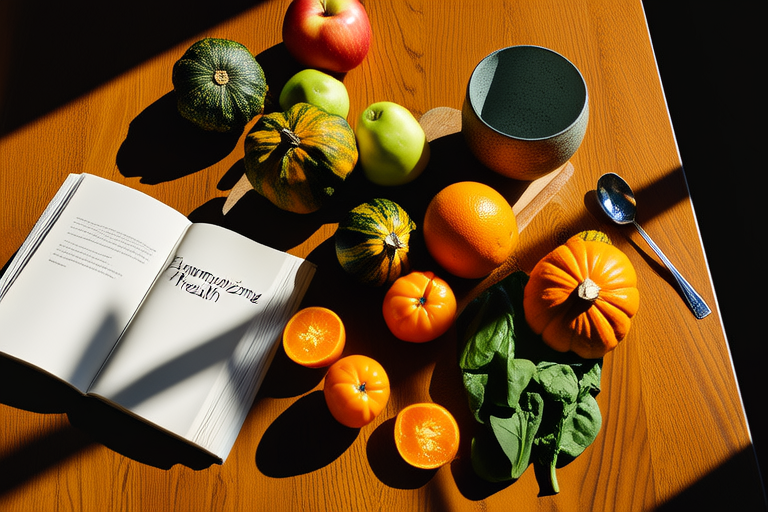Thriving Through the Seasons: Essential Health Preservation Tips for Every Time of Year
As the Earth rotates around the Sun, each season brings its own unique set of environmental changes, challenges, and opportunities. Adapting our health practices to align with these seasonal shifts is not only a practical approach but also a scientifically sound way to maintain overall well-being. From fluctuating temperatures to varying daylight hours, the natural world influences our physical and mental health in profound ways. By understanding and embracing these changes, we can better protect ourselves against common seasonal ailments while maximizing the benefits each time of year has to offer.
This article explores essential health preservation tips tailored to the distinct characteristics of spring, summer, autumn, and winter. Whether it’s boosting immunity during the colder months or staying hydrated in the heat of summer, these strategies will empower you to thrive year-round. Let’s delve into how you can optimize your health through every season.
Spring: Rejuvenate and Prepare
Spring is a season of renewal, marked by warmer temperatures, longer days, and the blooming of flowers. However, it also presents challenges such as seasonal allergies and fluctuating weather patterns. To make the most of this vibrant time of year, consider the following tips:
- Combat Seasonal Allergies: Pollen levels rise in spring, triggering allergic reactions in many people. To minimize symptoms, keep windows closed during high pollen days, use air purifiers indoors, and shower after spending time outside to remove allergens from your skin and hair. Over-the-counter antihistamines can also provide relief.
- Boost Your Immune System: After the cold winter months, your immune system may need extra support. Incorporate immune-boosting foods like citrus fruits, garlic, and ginger into your diet. Regular exercise and adequate sleep are also crucial for maintaining a strong immune response.
- Get Moving Outdoors: Spring offers ideal conditions for outdoor activities. Take advantage of the pleasant weather by engaging in exercises like walking, cycling, or gardening. Physical activity not only improves cardiovascular health but also elevates mood thanks to increased exposure to sunlight and fresh air.
- Spring Clean Your Diet: Just as nature sheds its winter coat, consider refreshing your diet. Focus on consuming more fresh vegetables and fruits that come into season, such as spinach, peas, and strawberries. These nutrient-dense foods provide antioxidants and vitamins essential for energy and vitality.
Summer: Stay Cool and Hydrated
Summer is synonymous with warmth, sunshine, and outdoor adventures. While it’s a time for fun and relaxation, it also requires vigilance against heat-related illnesses and dehydration. Here’s how to stay healthy during the hottest months:
- Prioritize Hydration: High temperatures increase the risk of dehydration, which can lead to fatigue, dizziness, and even heatstroke. Drink plenty of water throughout the day, even if you don’t feel thirsty. Carry a reusable water bottle and opt for hydrating foods like cucumbers, watermelon, and oranges.
- Protect Your Skin: Prolonged sun exposure can damage your skin and increase the risk of skin cancer. Apply a broad-spectrum sunscreen with at least SPF 30 before heading outdoors, and reapply every two hours. Wear protective clothing, hats, and sunglasses to shield yourself from harmful UV rays.
- Avoid Peak Heat Hours: The sun is strongest between 10 a.m. and 4 p.m., making it the riskiest time for heat exhaustion. Plan outdoor activities for early morning or late afternoon, and seek shade whenever possible.
- Eat Light and Fresh: Heavy meals can make you feel sluggish in the heat. Opt for light, refreshing dishes like salads, smoothies, and grilled vegetables. Foods rich in electrolytes, such as bananas and coconut water, can help replenish minerals lost through sweat.
Autumn: Transition Gracefully
Autumn signals a shift toward cooler weather and shorter days, creating an opportunity to recalibrate your health routines. This transitional season often brings a sense of calm and introspection, making it an excellent time to focus on self-care and preparation for winter. Here’s how to navigate autumn effectively:
- Support Mental Health: As daylight decreases, some individuals may experience seasonal affective disorder (SAD) or feelings of low energy. Combat these effects by maintaining a consistent sleep schedule, practicing mindfulness or meditation, and spending time outdoors during daylight hours to soak up natural light.
- Strengthen Your Immunity: With flu season approaching, bolster your defenses by getting vaccinated and continuing to eat a balanced diet rich in vitamins C and D. Probiotic-rich foods like yogurt and fermented vegetables can also enhance gut health, which plays a critical role in immunity.
- Embrace Seasonal Produce: Autumn harvests bring an abundance of nutritious options like pumpkins, sweet potatoes, apples, and Brussels sprouts. These foods are packed with fiber, antioxidants, and essential nutrients that support overall wellness.
- Adjust Your Workout Routine: Cooler temperatures make autumn an excellent time to explore new forms of exercise. Try hiking, trail running, or yoga classes indoors to stay active without overheating. Layered clothing allows flexibility as temperatures fluctuate.
Winter: Fortify and Flourish
Winter is often associated with cold weather, reduced sunlight, and holiday indulgences. While it can be tempting to hibernate indoors, taking proactive steps to safeguard your health will ensure you emerge from the season feeling strong and resilient. Follow these tips to thrive during the coldest months:
- Prevent Cold and Flu: Viruses spread more easily in winter due to closer contact indoors and lower humidity levels. Wash your hands frequently, avoid touching your face, and disinfect commonly used surfaces. Consuming zinc-rich foods like nuts and seeds can also help reduce the duration of cold symptoms.
- Maintain Vitamin D Levels: Reduced sunlight exposure in winter can lead to vitamin D deficiency, which affects bone health and immune function. Consider incorporating fortified foods or supplements into your routine, as recommended by a healthcare provider.
- Stay Active Indoors: Cold weather doesn’t mean you have to abandon exercise. Explore indoor activities like swimming, dancing, or home workouts using resistance bands. Staying physically active supports both physical and mental health during the darker months.
- Practice Mindful Eating: The holidays often bring an abundance of rich, calorie-dense foods. Enjoy treats in moderation and balance them with nutrient-dense meals. Prioritize lean proteins, whole grains, and colorful vegetables to sustain energy and prevent weight gain.
Conclusion: A Year-Round Commitment to Health
Thriving through the seasons requires awareness, adaptability, and intentionality. Each season presents unique challenges—whether it’s battling allergies in spring, staying cool in summer, managing mental health in autumn, or warding off illness in winter—but they also offer opportunities to prioritize different aspects of well-being. By implementing science-backed strategies tailored to the time of year, you can build resilience and enjoy a higher quality of life year-round.
Remember that consistency is key. Small, sustainable changes add up over time, creating a foundation for long-term health. Embrace the rhythm of nature, listen to your body, and adjust your habits accordingly. With these tools in hand, you’ll be equipped to navigate the changing seasons with confidence and vitality.










